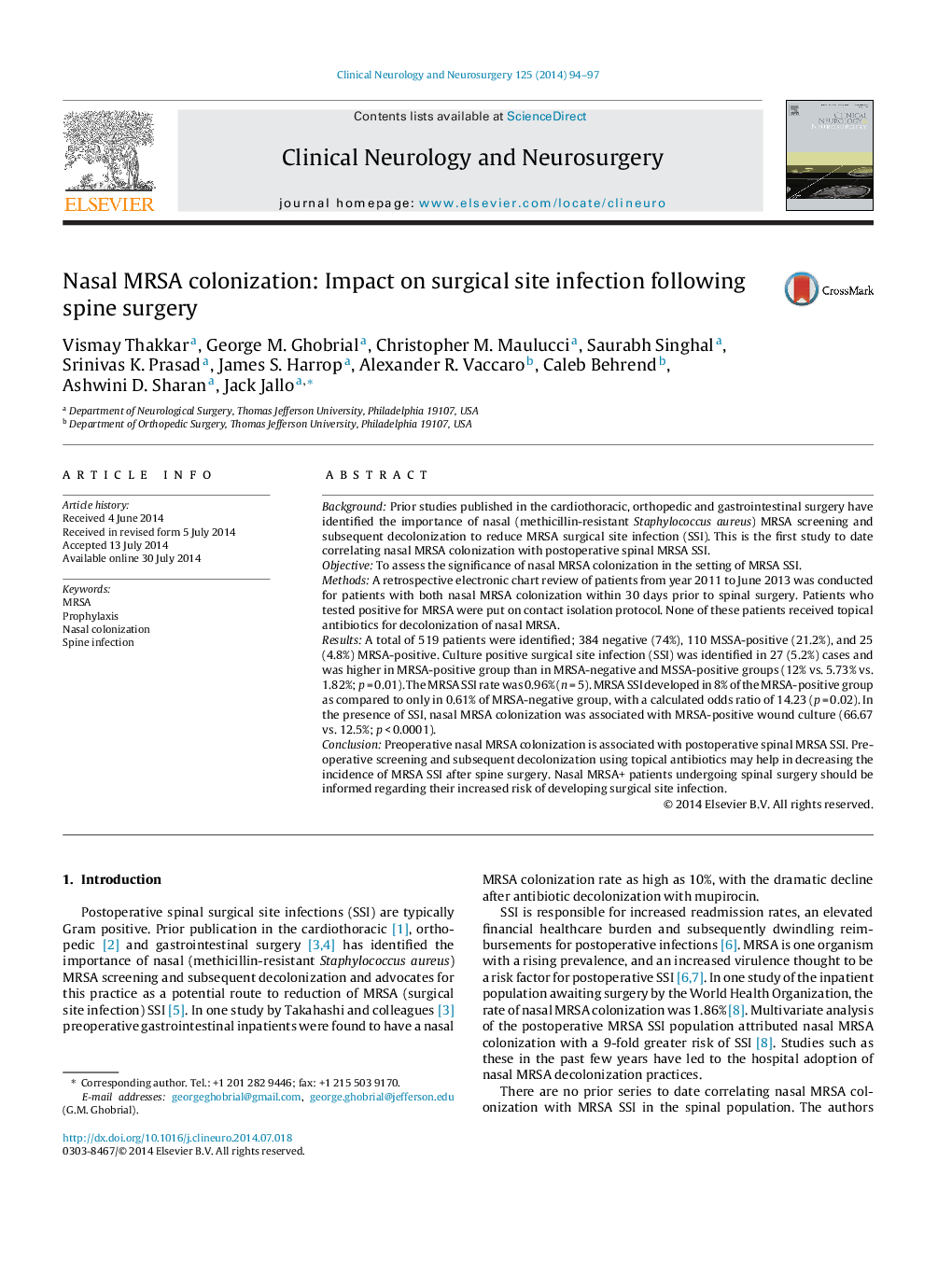| کد مقاله | کد نشریه | سال انتشار | مقاله انگلیسی | نسخه تمام متن |
|---|---|---|---|---|
| 3040215 | 1579697 | 2014 | 4 صفحه PDF | دانلود رایگان |

• This is the first study to date correlating nasal MRSA colonization with postoperative spinal MRSA SSI.
• MRSA SSI developed in 8% of the MRSA-positive group as compared to 0.61% of MRSA-negative group, with a calculated odds ratio of 14.23 (p = 0.02).
• Preoperative nasal MRSA colonization is associated with postoperative spinal MRSA SSI.
BackgroundPrior studies published in the cardiothoracic, orthopedic and gastrointestinal surgery have identified the importance of nasal (methicillin-resistant Staphylococcus aureus) MRSA screening and subsequent decolonization to reduce MRSA surgical site infection (SSI). This is the first study to date correlating nasal MRSA colonization with postoperative spinal MRSA SSI.ObjectiveTo assess the significance of nasal MRSA colonization in the setting of MRSA SSI.MethodsA retrospective electronic chart review of patients from year 2011 to June 2013 was conducted for patients with both nasal MRSA colonization within 30 days prior to spinal surgery. Patients who tested positive for MRSA were put on contact isolation protocol. None of these patients received topical antibiotics for decolonization of nasal MRSA.ResultsA total of 519 patients were identified; 384 negative (74%), 110 MSSA-positive (21.2%), and 25 (4.8%) MRSA-positive. Culture positive surgical site infection (SSI) was identified in 27 (5.2%) cases and was higher in MRSA-positive group than in MRSA-negative and MSSA-positive groups (12% vs. 5.73% vs. 1.82%; p = 0.01). The MRSA SSI rate was 0.96% (n = 5). MRSA SSI developed in 8% of the MRSA-positive group as compared to only in 0.61% of MRSA-negative group, with a calculated odds ratio of 14.23 (p = 0.02). In the presence of SSI, nasal MRSA colonization was associated with MRSA-positive wound culture (66.67 vs. 12.5%; p < 0.0001).ConclusionPreoperative nasal MRSA colonization is associated with postoperative spinal MRSA SSI. Preoperative screening and subsequent decolonization using topical antibiotics may help in decreasing the incidence of MRSA SSI after spine surgery. Nasal MRSA+ patients undergoing spinal surgery should be informed regarding their increased risk of developing surgical site infection.
Journal: Clinical Neurology and Neurosurgery - Volume 125, October 2014, Pages 94–97